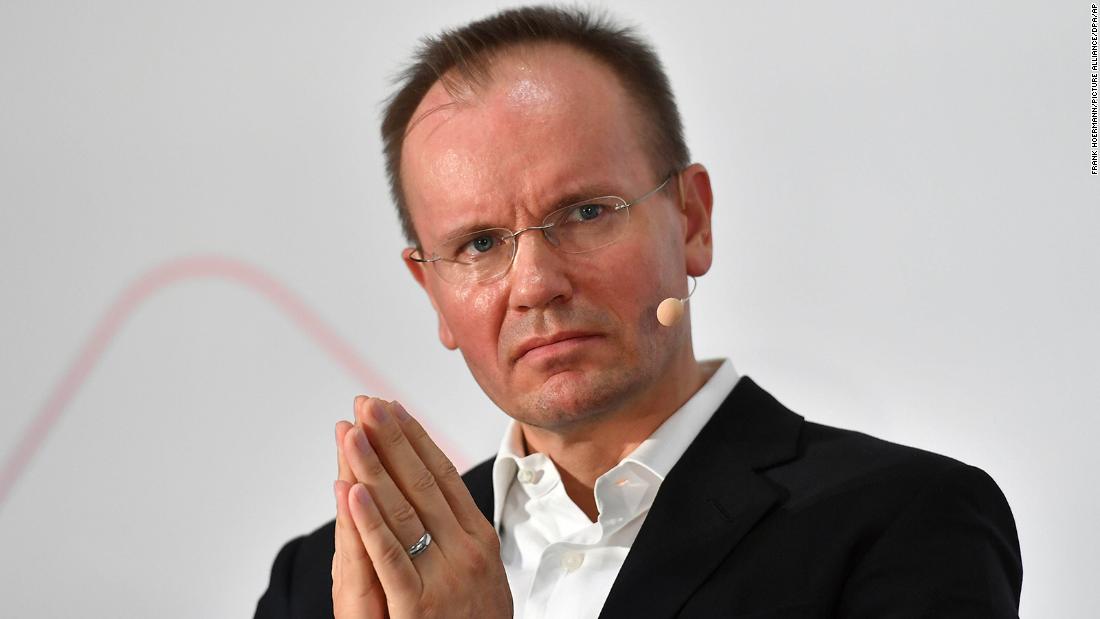
Braun will be released Tuesday on bail of 5 million euros ($ 5.7 million), prosecutors said.
The scandal erupted last week when Wirecard said its auditor, EY, was unable to locate the funds in trust accounts and refused to sign the company’s financial results. The aftermath is raising questions about how the company’s regulators and auditors might have overlooked accounting irregularities that are already making comparisons to Enron, the American energy giant that filed for bankruptcy in 2001.
Founded in 1999, Wirecard was considered one of the most promising technology companies in Europe. Process payments for consumers and businesses, and sell data analysis services. The company has almost 6,000 employees in 26 countries around the world.
Braun, who also served as chief technology officer for Wirecard, had led the company since 2002. The former KPMG consultant is the company’s largest shareholder, with shares of just over 7%, according to Refinitiv data.
The company now faces an existential crisis. A frantic search for the lost money found a dead end over the weekend in the Philippines, where the central bank denied that the cash had entered the country’s financial system. The company’s shares plummeted on Monday, spreading a collapse that wiped out 85% of its share price in three trading sessions. Wirecard ended the day with a market value of € 1.7 billion ($ 1.9 billion).
Wirecard is struggling to keep creditors at bay, a task that could be complicated by the arrest of its former CEO. The company said Friday night that it had hired investment bank Houlihan Lokey to present a new financing strategy.
‘Total disaster’
German Finance Minister Olaf Scholz described the scandal as “extremely worrying” on Tuesday, saying the country must act quickly to improve supervision of companies like Wirecard. “Critical questions arise about the company’s oversight, especially regarding accounting and balance sheet control. The auditors and oversight bodies do not appear to have been effective here,” Scholz said in a statement.
The Federal Financial Supervisory Authority, or BaFin, said last week that it is actively investigating whether Wirecard violated anti-market manipulation rules. But Felix Hufeld, who heads the regulator and sits on the supervisory board of the European Central Bank, described the scandal as a “total disaster.”
“It is a scandal that something like this can happen,” Hufeld said, in comments that were reported by Reuters and confirmed by the regulator.
The implosion follows a tumultuous 18 months for the company marked by fraud allegations, short vendor attacks and questions about its accounting practices.
The success story began to unravel in January 2019, when the Financial Times reported that Wirecard falsified and delayed contracts in a series of suspicious transactions in Singapore. The company denied the report, which was produced with the help of a whistleblower, but its actions plummeted. In February 2019, Singapore authorities said they would investigate.
Another blow fell late last year, when the FT released a report and company documents suggesting profits and sales had inflated at Wirecard outposts in Dubai and Ireland. Wirecard again denied the allegations. But an investigation by KPMG published in April found that the company had not provided enough information to fully explain the issues raised by the FT.
Braun explained his decision to resign last week in a letter to employees and shareholders.
“The capital market trust in the company that I have managed for 18 years has been deeply shaken … I respect the fact that the responsibility for all business transactions lies with the CEO,” said Braun.
– Mark Thompson, Eoin McSweeney and Chris Liakos contributed reports.
.